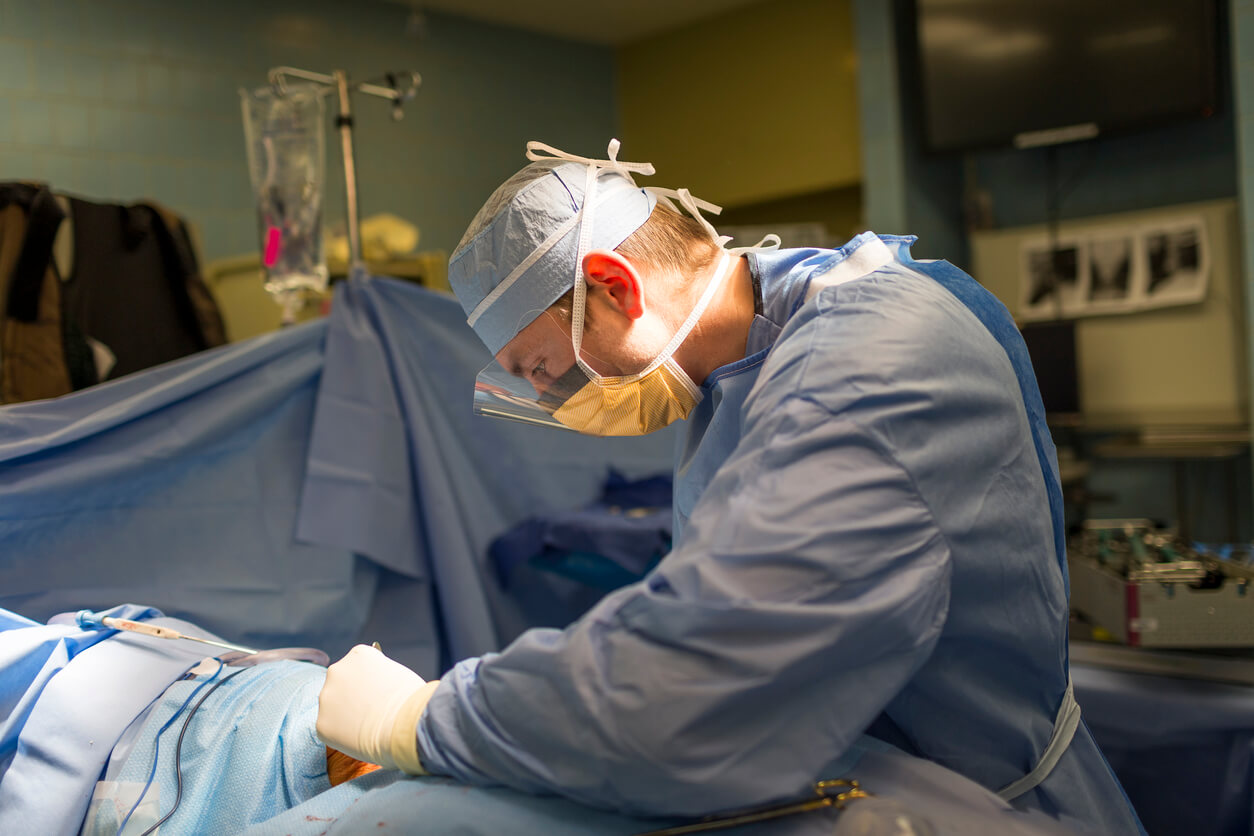
Orthopedic surgery plays a crucial role in treating musculoskeletal conditions, helping individuals regain mobility and improve their quality of life. From fractures to joint replacements, orthopedic surgeons specialize in diagnosing and treating a wide range of bone and joint issues.
If you or someone you know is considering orthopedic surgery, it’s essential to understand the different types of procedures available and what to expect throughout the process.
Common Types of Orthopedic Surgery
There are numerous types of orthopedic surgical procedures, but some of the most common include the following:
Fracture Repair
Fractures are one of the most common reasons for orthopedic surgery.
Whether it’s a broken bone in the arm, leg, or spine, surgical intervention may be necessary to properly align and stabilize the fracture.
Surgeons use techniques such as open reduction internal fixation (ORIF) or external fixation to hold the broken fragments together while they heal.
Joint Replacement
Joint replacement surgery is a highly effective procedure for individuals suffering from severe joint pain and limited mobility.
The most common joint replacements include hips and knees, but other joints like shoulders and elbows can also be replaced.
During surgery, the damaged joint is removed and replaced with an artificial implant made of metal, plastic, or ceramic, designed to mimic the natural joint’s movement.
Arthroscopy
Arthroscopy is a minimally invasive procedure that allows surgeons to diagnose and treat various joint conditions.
With the help of an arthroscope or a tiny camera, orthopedic surgeons can see the inside of the joint and address issues like cartilage damage, torn ligaments, or inflamed tissues.
Arthroscopic surgery offers faster recovery times, smaller incisions, and reduced post-operative pain compared to traditional open surgery.
Spinal Surgery
Spinal surgery aims to alleviate back pain and correct spinal deformities or injuries.
Procedures like spinal fusion, laminectomy, or discectomy can help stabilize the spine, relieve pressure on nerves, and restore proper spinal alignment.
Advancements in technology, such as minimally invasive techniques and robotic-assisted surgery, have improved surgical outcomes and reduced recovery times for spinal procedures.
What to Expect
Before undergoing orthopedic surgery, it’s crucial to consult with your orthopedic surgeon and understand what to expect throughout the process. Here are a few key points to consider:
1. Pre-Operative Preparations
Your surgeon will provide you with specific instructions to prepare for surgery, which may include:
- Fasting before the procedure
- Stopping certain medications
- Arranging for transportation to and from the hospital
They will also discuss the risks and benefits of the surgery, ensuring all your questions are addressed.
2. Surgical Procedure
During the surgery, you will be placed under anesthesia to ensure your comfort. The length and complexity of the procedure will depend on the type of surgery being performed.
Your surgeon will make incisions, perform the necessary repairs or replacements, and close the incisions using stitches or staples.
3. Postoperative Recovery
After the surgery, you will be moved to a recovery area where healthcare professionals will closely monitor your vital signs and manage any pain or discomfort.
The length of the hospital stay varies depending on the procedure.
Physical therapy or rehabilitation may also be prescribed to help restore strength, flexibility, and function.
4. Rehabilitation and Follow-up
Following orthopedic surgery, rehabilitation plays a vital role in your recovery.
Physical therapy exercises and activities will help you regain mobility, gradually increasing your strength and range of motion.
Your surgeon will schedule follow-up appointments to monitor your progress, assess any potential complications, and provide further guidance on your recovery journey.
When Orthopedic Surgery Might be the Next Step
Orthopedic surgery is typically considered when conservative treatments have failed to provide adequate relief for your musculoskeletal condition.
Here are some scenarios in which orthopedic surgery might be considered:
Chronic Pain and Limited Mobility
Surgery may help with chronic pain that significantly impacts your daily activities and limits your mobility.
This is particularly true if your condition affects your ability to perform essential tasks or compromises your overall quality of life.
Failed Non-Surgical Treatments
Orthopedic surgery is often recommended when non-surgical treatments have been unsuccessful in managing your condition.
Traumatic Injuries
Severe traumatic injuries, such as fractures or dislocations, often require surgical intervention to achieve proper alignment and stability.
Surgery can help promote optimal healing and reduce the risk of long-term complications.
Progressive Degenerative Conditions
Certain degenerative conditions, such as osteoarthritis or degenerative disc disease, can worsen over time, leading to increased pain, joint damage, and functional limitations.
Surgery may be considered to repair or replace damaged joints, stabilize the spine, or address other specific issues related to the condition.
Structural Abnormalities
Structural abnormalities, such as bone deformities, ligament tears, or tendon ruptures, may require surgical correction.
Surgery can help restore the normal alignment and function of the affected area, allowing you to regain mobility and reduce pain.
The Best Orthopedic Doctor in Austin, TX
Orthopedic surgery offers hope for individuals struggling with bone and joint issues, providing them with an opportunity to regain mobility and improve their overall well-being. By learning about the different types of orthopedic procedures and what to expect throughout the process, you can approach surgery with confidence and work towards a successful recovery. Always consult with your orthopedic surgeon to determine the best course of action for your specific condition.
You can trust All-Star Orthopedics of Austin’s Dr. Carolyn Hyde if you’re looking for the best orthopedic doctor in Austin, TX. Call us today at (512) 346-4933 to see how we can help you. Alternatively, you can book an appointment with our online request form.
We look forward to serving you!





